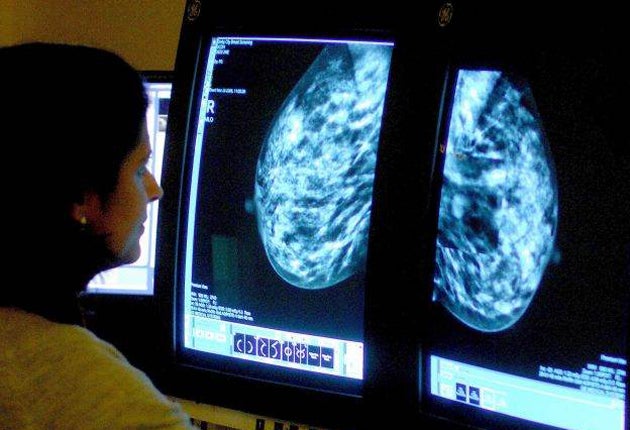Lisa Markwell: A genetic disease with a terrifying generic name
FreeView from the editors at i

Your support helps us to tell the story
From reproductive rights to climate change to Big Tech, The Independent is on the ground when the story is developing. Whether it's investigating the financials of Elon Musk's pro-Trump PAC or producing our latest documentary, 'The A Word', which shines a light on the American women fighting for reproductive rights, we know how important it is to parse out the facts from the messaging.
At such a critical moment in US history, we need reporters on the ground. Your donation allows us to keep sending journalists to speak to both sides of the story.
The Independent is trusted by Americans across the entire political spectrum. And unlike many other quality news outlets, we choose not to lock Americans out of our reporting and analysis with paywalls. We believe quality journalism should be available to everyone, paid for by those who can afford it.
Your support makes all the difference.When I told my children I had cancer, I took time to explain that cancer was just a word, a big frightening word, but just a word. It was not the definitive explanation of what was wrong with me.
I'd got the unvarnished Big C diagnosis at the hospital and a leaflet on "how to tell the children". That got tossed in the recycling bin and I navigated it on instinct; "cancer" means "ill", I said. Everyone who gets it has something a bit different, I busked. Turns out I was right.
I had breast cancer (might still have it, for all I know, after an array of treatments). I could tell my children where it was, and what I was going to do about it, but the detail of what it was exactly eluded me, and then them. It's a genetic disease with a terrifying generic name.
Trying to get a handle on things, my little girl asked if she could keep the lump they cut out – so that she could see what it was. Not a thought for the squeamish, but on reflection it mightn't have been a bad idea.
Studying breast cancer is a big deal – we all know the arguments about it getting more attention than the more deadly lung cancer.
Now we hear that rather than one disease, groundbreaking and tirelessly thorough research on frozen tumours removed from 2,000 patients (see, that lump in a jam jar would have come in useful) has shown it can be broken down into 10 subtypes (i cover story, yesterday). Each of these has its own genetic fingerprint and can have a tailored treatment. Which is Very Good News.
It has been all big words with cancer thus far. Chemotherapy, radiotherapy, Tamoxifen – even the people untouched by it are familiar with those words. Anything that right-sizes the terminology would be good.
Everyone who has cancer has to navigate a daunting maze of treatments and outcomes. I was given a "choice" whether to have chemo/ radio/whatever by an oncologist following the current thinking, which seeks to empower the patient by letting them have the decision on what combination of the above to have. This news could change that approach rapidly. Instead of a "best guess" about the myriad grisly combos, this detailed information about different subtypes of breast cancer means we can, hopefully, be told by an expert what the exact best course of action is. More of us can go on living, instead of dying. And the patient can get on with telling their family – and get on with the business of dealing with the disease X1F3zz-onoma, or whatever it'll be called. Yes, Very Good News.
Join our commenting forum
Join thought-provoking conversations, follow other Independent readers and see their replies
Comments